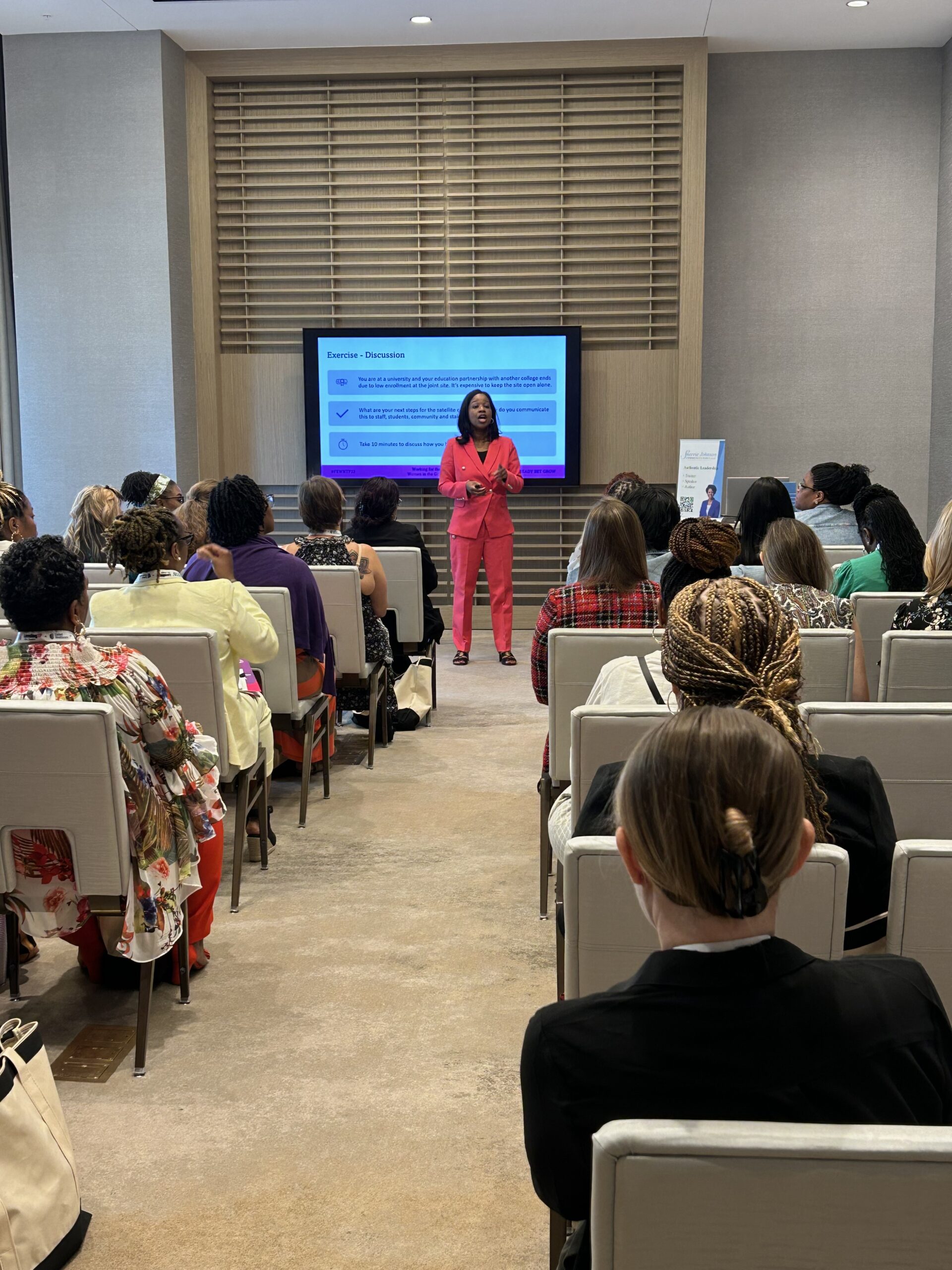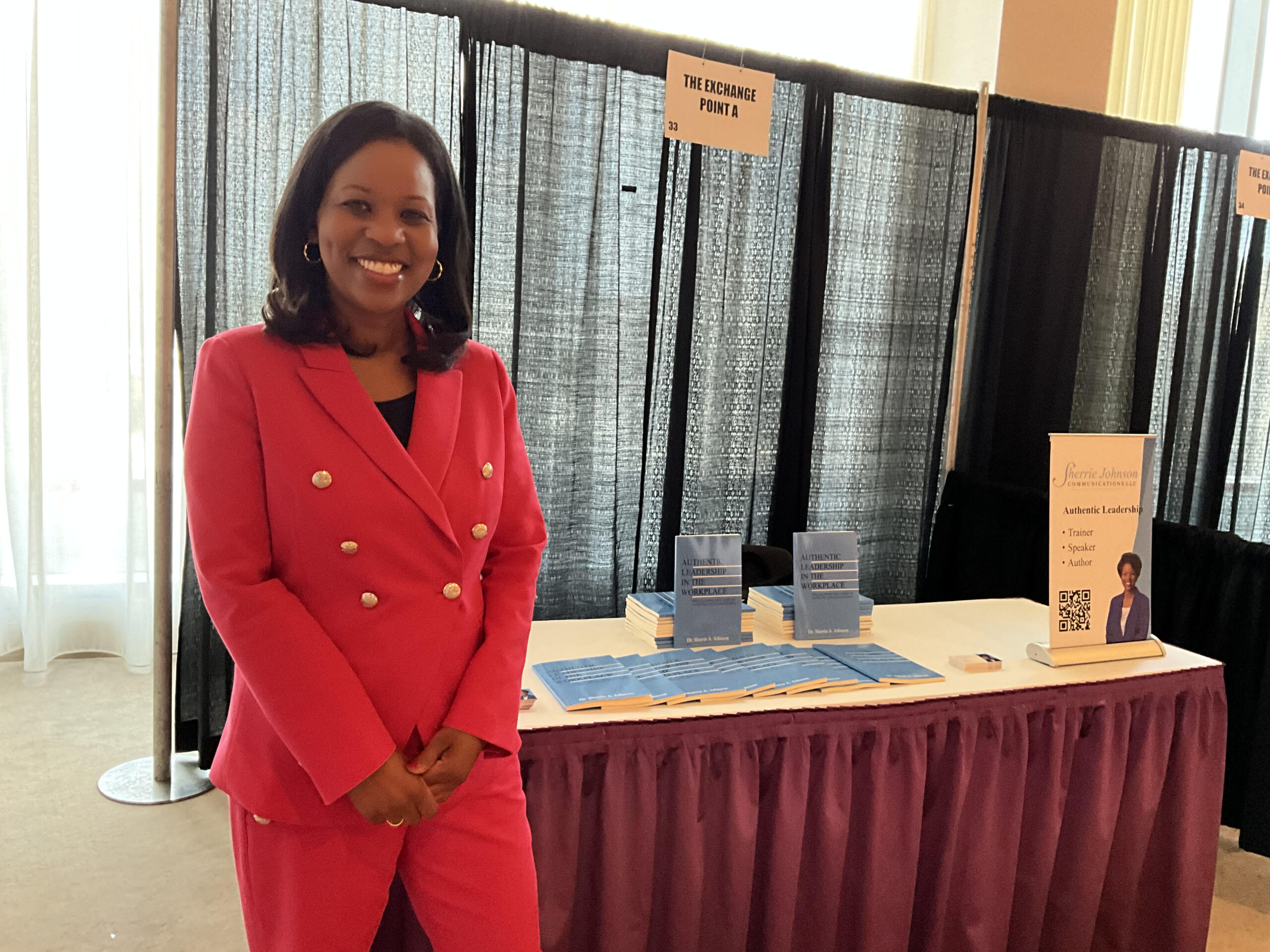Catching up with Dr. Sherrie A. Johnson
by John Reid
“Leadership is the capacity to translate vision into reality.”
Whether it’s in the media, education, or entrepreneurship, Dr. Sherrie A. Johnson has always been able to translate whatever she sets out to into purpose and success. Last year, we spoke with her on the creation of her organization, Sherrie Johnson Communications, LLC. Since then, she has seen incredible success, and spoke with the PW Perspective about what has taken place.
“Business has been good,” she says. “I have been traveling and increasing my clientele with speaking on leadership and most recently (in July), I participated in the Federally Employed Women (FEW) conference in Columbus, Ohio. I had an opportunity to speak on ethical leadership, communication in leadership, and integrity in leadership.”
She reflects on what was the one course that stood out.
“I have to tell you, the one on communication in leadership was standing room only,” she continues. “That course talked about how leaders communicated effectively with their staff. It is really tough for some people, and some leaders don’t communicate as well as they should. I had been asked to speak communication leadership more often, even to the point where I am doing trainings now.”
Her trainings have taken her across the country.
“I have participated with continuing education for some corporate companies and talking about communications leadership and ethical leadership with executive staff. I’ve also worked with Society for Human Resources Management (SHRM) in Monterrey, California, the Human Resources Certificate Institute (HRCI) on ethical leadership, and the Association of Talent Development’s Golden Gate chapter in San Francsico.”
“I’ve spoken to a lot of SHRM chapters,” she continues, “and they are very interested in authentic leadership, so I’ve built up those frequent flyer miles as I’ve hit the ground running, but I’m venturing into the corporate training space. I’m excited for how Sherrie Johnson Communications, LLC is going.”
Also, she talks about how the success of her most recent book, “Authentic Leadership in the Workplace,” is going. “Book sales are rising, and they are doing really well.”
Will this mean she plans on doing any book tours in the near future? “You’re the fourth person to ask,” she laughs, “so now I’m considering it.”
“I’ve participated in several podcasts,” she continues, “and they’ve asked me about it as well. I think there’s something there.”
What are some of the challenges leaders have communicating with staff? “Sometimes, people may have education in different areas, but they don’t have education or training in leadership or communication.”
“It’s not something you can take for granted, sometimes it means if you get information out to the employees,” she continues. “Is it done by email, newsletter, or a staff meeting? Some people literally do not know how to get the information out, and it may seem logical in your lead, but it doesn’t come out when you speak. As a result, your staff may not know what you’re doing.”
“It is important to sit down and speak with leaders and show them ways they can communication, how, and when.”
Drawing on her expertise as a public communications officer, “Some leaders think that sending a press release is all you need to do, but you need to tell your staff first before you tell the media. You can’t assume that everyone watches the 6:00pm news. There is such a thing as internal and external communication, and I teach them how to disseminate the news to their staff before they share it with the public.”
Her book highlights many ways for leaders to be transparent, upon them is the Authentic Leadership Theory. “Authentic leadership theory is a leader that is open, honest, communicates with the staff and are transparent. They are self-aware and they understand who they are and that’s important in an effort to lead others.”
“When a leader is open and honest, staff respects that leader. It results in higher performance and less transition. When people do not respect their leader, that’s when you have performance issues.”
“Another thing about the authentic leadership theory is the leader does not gaslight their employees,” she continues. “It’s doing things that are not appropriate, and when the employees call it out, the response is ‘I don’t know what you’re talking about,’ knowing they are doing things to harm the employees. Studies show there is a need for more positive leadership in society.”

As there has been a focus on unethical leadership in media circles, she talks about how she incorporates ethical leadership in her training. “I enjoy being asked to speak, because it gives me an opportunity to show how ethical leadership creates a commitment by the employees. It is a healthier workplace. When you have negativity, it results in an unhealthy environment.”
“I educate them for the need for positive leadership in the workplace.”
In addition to the theory, she presents another concept that leaders should adapt to.
“We talk about ‘managing up,’ and that means trying to inform or educate your supervisor. It’s hard, and I understand that. But when I go and provide these trainings, it’s not always what they want to hear, but what they need to hear.”
Feedback she has received, with a focus on pivoting, and what it means to her. “It is so important to be able to pivot. Sometimes, if you see a situation going on, you have to think about what the best ways are to handle it. It may mean how to pivot your leadership style. Authentic leadership is great, but leaders have to also be situational leaders, and what works for one employee may not work for another.”
“Some employees do not need a micro-manager around them, just give them their assignments and leave them alone. Other employees may have a question every step of the way. Leaders have to learn that everyone is different. You have to be consistent in being open, honest, and transparent.”
“I have two online courses; one is on authentic leadership and staff success. It is self-paced and has eight modules.”
What has the feedback been from leaders?
“I have received positive feedback,” she says. “A lot of leaders have come back and said the trainings have helped them to see things in a different way. It’s as I always say, ‘You don’t know what you don’t know,’ and with F.E.W. I have already been invited next year to follow up on some of the things we’ve talked about this year.”
She talks about how it is important to be transparent.
“We need more transparent leaders in the workplace. It’s also about holding people accountable for their and being the best possible leader for them.”
“I’m seeing more leaders being open-minded, and they are setting expectations for themselves. The leaders set the tone, and when they say they are going in a different direction and explain it with good reasoning, people will get on board.”
How is that possible? She says it has to be done with providing plenty of information.
“It’s important to get your data and research to provide a rationale for making these decisions, the employees will follow, and be excited about it.”
“Leaders need employees, and that is why you need to have staff buy-in. Employers should give them a chance to speak up, which is why it is important to have that one on one to see how they feel about a decision.”
What is the future for Sherrie Johnson Communications, LLC? “I’m very excited for working with the federal government and local agencies to provide training on leadership. I will also work with colleges and providing training to them as well. If anyone is interested in training, please reach out to me.”
For more information on how you can speak with Dr. Johnson, visit her website.




